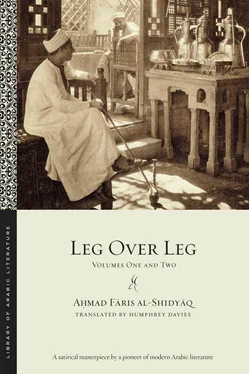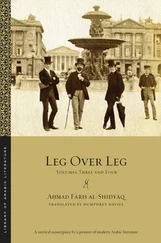2.9.2
The archetype of this would be a king getting angry, for example, with some man or other for an offense he had committed, that man sending him a naked intercessor to placate him, this intercession soothing the eruption of the king’s anger, the aggravational modality then combining with the gymnological quiddity, these two forming a second skin around the one who’d been in fear of losing his first skin through flaying, and he thenceforth flaunting this among his peers as a permanent adornment, never again to fear that fate might one day turn on him and gore him. In general, such second skins require two bodies — a body with which someone is angry and a body interceding on the former’s behalf — while, in general, the insignificant protuberance requires just one.
2.9.3
One kind of insignificant protuberance is the ecclesiastical, which is of two sorts, the earth-bound and the air-borne. The earth-bound is that which has an abode or place of origin in the earth where it grows and bears fruit; such would be the case, for example, of some “catholicos” abiding in a house or a monastery who has authority over the people, who send him tithes and the like and whom he therefore commands, forbids, rules, and judges according to the requirements of the law, or whim. He is bound to have a secretary to keep his secrets off the books , to stiffen his backbone one or more cooks , a treasurer to hoard his golden dinars , a jail to hold anyone who differs from him in opinion or his ambitions bars , and so forth. The air-borne is the opposite of the preceding, an example being the protuberance borne by Metropolitan Atanāsiyūs al-Tutūnjī, author of The Leavings Pile Concerning Lame Style , 487whose master has invested him with it so that he can use it to rule over Levantine Tripoli, even though there are none of his sect in that city to send him his tithes, make him his food, or write a letter for him; he has been invested with it, it follows, simply for decorative purposes, in keeping with the custom of certain ancients, who would give the protuberance of “emir” to one who raised donkeys and “king” to the shaykh of some benighted village. The object of all this is to set one individual apart from the rest by the use of some distinguishing mark.
2.9.4
Now that you have become aware of this, know too that the titles Khawājā, Muʿallim , and Shaykh are not to be considered either protuberances or second skins, because obtaining them calls neither for intercession nor for any pruritic combining with gymnological quiddities. 488They are merely rags to cover the shame of the naked name that has been given its bearer and are neither stitched, tacked, buttoned onto, or wrapped around it. In fact, they are more like a ticket tied onto the one wearing it to show his value. Frequently, however, the mistake is made of attaching them to persons to whom they have no connection. Thus in Egypt, for example, they apply the word Muʿallim to Coptic Christians, who are neither muʿallim nor muʿallam , if we are to derive the word from ʿilm (“knowledge”), 489though if we are to derive it from ʿalāmah (“mark”), there can be no objection. They apply the term Khawājā to others too, 490and as its original meaning is the same as that of Muʿallim , the same objection holds true. The word shaykh appertained originally to one who had reached old age; then it was applied to someone who had advanced in learning and other things, as a figurative extension of advancement in years, for the minds of the elderly are discriminating and their judgment is sound, even if women will have no more to do with them. This distinguishing characteristic was then transferred to those who engage in scholarly pursuits.
2.9.5
After pondering the matter, it seems to me that these protuberances and skin flaps do great injury both to those whom they adorn and those who are devoid of them. The first argument in support of this is that a person who bears one believes, in the depths of his heart, that he is better than others, physically and morally. Thus, he looks at the other as a ram with horns does at one without and contents himself with this external feature instead of seeking to attain praiseworthy qualities and meritorious inner traits, and this allows it to lead him in the direction of moral torpor and vicious pleasure. The second is that, should Saturn’s noose get caught round his neck one day and drag him into the orbit of its adversities, if he fails to find a woman with a second skin like his, he’ll be unable to withstand those adversities with any other; and it may happen that he fall in love with a beautiful serving girl who works in his house, in the kitchen or the stable, and his father, or his father-in-law, or his other relatives, or his emir, may tell him to have nothing to do with her, in which case beautiful girls will be left high and dry, which is regarded by Islamic law as reprehensible — nay, the scholars have all asserted authoritatively that it is absolutely forbidden.
2.9.6
The third is that it might happen that he marry a woman with a second skin who is as badly off as he and not well-heeled. Then, if she bears him children, he will lack the means to bring them a shaykh to teach them at home and he’ll be too embarrassed to send them to the local school to learn along with everyone else’s. Should this be the case, his children will grow up unlettered, and the process will repeat itself with their offspring for as long as God wills. The fourth is that both protuberance and second skin impose upon those who bear them devastating expenses and catastrophic costs, driving their owner to excessive outlay and profligacy , to collapse and imminent bankruptcy , which may even lead him, in the end, to the noose of a palm-fiber rope. The fifth is that humans in their native state have neither protuberance nor second skin and to add them at a later stage is contrary to nature, or at least a form of meddling or recklessness. Other arguments exist, but I have decided not to mention them here for fear of going on too long. At least it must be clear to you by now that the Khawājā in question was possessed of neither protuberance nor second skin, though perhaps, had it not been for his natural inclination toward poetry, he might have acquired one or the other. But everything has its drawbacks.
2.10.1
May God relieve you — or shrive you or deceive you, 491following those who read ṣirāṭ or sirāṭ or zirāṭ or those who say “Demand the choicest of camels as your ransom!” and read the last word as either buṣāq or busāq or buzāq —of your sickness, Khawājā Yanṣur! You left the Fāriyāq in a state of unease and apprehension , waiting for an answer from you, morning and evening, in a state of tension . Replied the poet, “It grieves me greatly that your friend’s letter should have reached me while I was feverish and had a headache, thus preventing me from responding quickly. I would have liked to do so, despite my sufferings, had not the doctor, envoy of ʿAzrāʾīl, 492forbidden me to move. But you must hear the story of what happened to me with that cuckold.
2.10.2
“One day, I got indigestion from eating bulgur that I’d bolted down, lock, stock, and barrel, so that the next day I was ill and nauseous. It so happened that I was visited that morning by one of those emirs to whom, when they insist that something is thus and so, you have to say ‘Yes’ instead of ‘No’ and when they insist that it isn’t, you have to say ‘No’ instead of ‘Yes.’ Seeing me in that state, he asked, ‘What ails you?’ so I told him what had happened. ‘You must let my doctor see you right away,’ said he. ‘He is the most skillful of all doctors because he just arrived from Paris a few days ago. Were it not so, I wouldn’t have taken him on as a physician for me and my family.’ ‘It is my custom,’ I said, ‘to endure minor illnesses for a few days, and seek to cure them through dieting and precaution, for this may render medicines unnecessary. I find that doctors treat illnesses by conjecture and guesswork, and, by the time they arrive at cause and effect, one’s soul is almost coming out of one’s gullet, for they try one medication this time and another the next.’
Читать дальше












